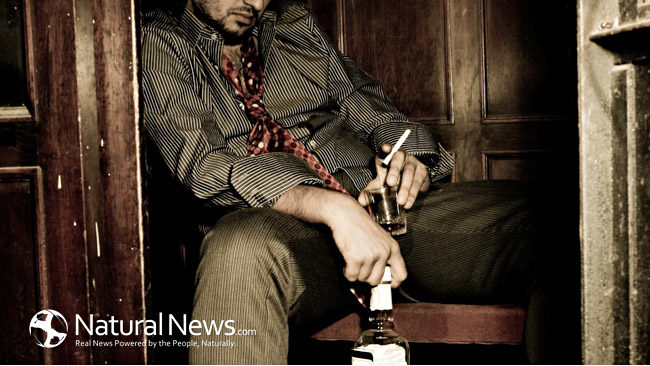Chemical dependency is one of the most difficult obstacles for a person to overcome. It often takes multiple methods and several attempts to relieve a person of their dependency in a conventional way, but there are natural alternatives that can help a person achieve success against drug or alcohol addiction.
When used alongside supportive therapy, these holistic methods of treatment improve a person’s chances of recovery. Most aim to find the sources of addiction, which can be a combination of emotional and physical imbalances. A person’s physical health corresponds with their ability to resist the drug’s addictive and withdrawal properties, while emotional health drives the motivation to abstain or use drugs in the first place. To simply take a substance away from someone may not relieve their addiction; only after the whole person is healed will they have the chance to live a chemical dependency-free life.
Replacement therapies, where one drug is switched with another to reduce the symptoms of withdrawal, are almost as harmful as the addiction itself. There are natural alternatives to ease withdrawal symptoms that don’t require narcotics, such as NAD (nicotinamide adenine dinucleotide) treatment. This is a coenzyme of B3 (niacin) and has numerous benefits. When given the IV NAD ‘megadose’ treatment, patients reported dramatically reduced withdrawal symptoms, a reduction in anxiety and depression, plus fewer cravings.
NAD therapy is fairly new and research is underfunded, but the science and tens of thousands of patient reports now support this concept. Vitamin B complex deficiencies are common among addicts, which results in poor body functions, especially neurologically. One suffering from such deficiency will feel fatigued, depressed, and anxious. The purpose of NAD and B3 in the body is to create and use energy efficiently, resulting in a clarity of mind and control over one’s physical self. NAD therapy works best for opiate and alcohol addictions.
Another natural but controversial therapy to ease withdrawal symptoms is ibogaine. This treatment consists of the ingestion of a plant extract, ibogaine, which has hallucinogenic properties. These properties should not be confused with those of recreational psychedelics, and are cathartic, if not uncomfortable.
A patient’s experience while under the hallucinatory effects are a small part of the equation. A day after ingestion, withdrawal symptoms are eliminated, and in one to three days cravings disappear as the plant detoxifies and resets the patient’s body to a ‘pre-addiction’ state. Ibogaine treatment has the benefits of NAD therapy but requires just one session. It may be used to treat all sorts of addictions, including opiate, nicotine, methamphetamine, and cocaine among others.
Despite its incredible healing properties, ibogaine is classified as an illegal substance in the United States, and cannot be distributed in the UK. It sadly remains a rare treatment option, but some are able to travel to Mexico, where the treatment is more openly available. If you’re able to reach a treatment centre, ibogaine is a well-documented option to consider. It allows patients to look within themselves, physically and emotionally, to source the imbalances pushing them toward addiction.
For non-chemical alternatives, people struggling with addiction have other options. Acupuncture has been proven to aid a person’s path to recovery, treating both the withdrawal symptoms and emotional distresses. Also, exercise is simple but important for recovering addicts and should not be underestimated. Exercise releases endorphins, relieves stress, improves sleep, and makes patients feel more energised.
Addiction is a complicated problem and there is no one solution, but a person struggling with this disease is not alone in their recovery. Replacement therapy and frequent relapse do not need to be the fate of any addict, but with a combination of therapy, both body and mind, their chances of recovery are greatly improved. Everyone, not just addicts, needs a supportive lifestyle where they feel productive and safe. Counselling is always recommended, whether through group meetings, or in a more personal setting to aid the recovery of chemical dependency. Use it in addition to methods like those discussed in this article, which will give a person the strength they need to beat addiction.





